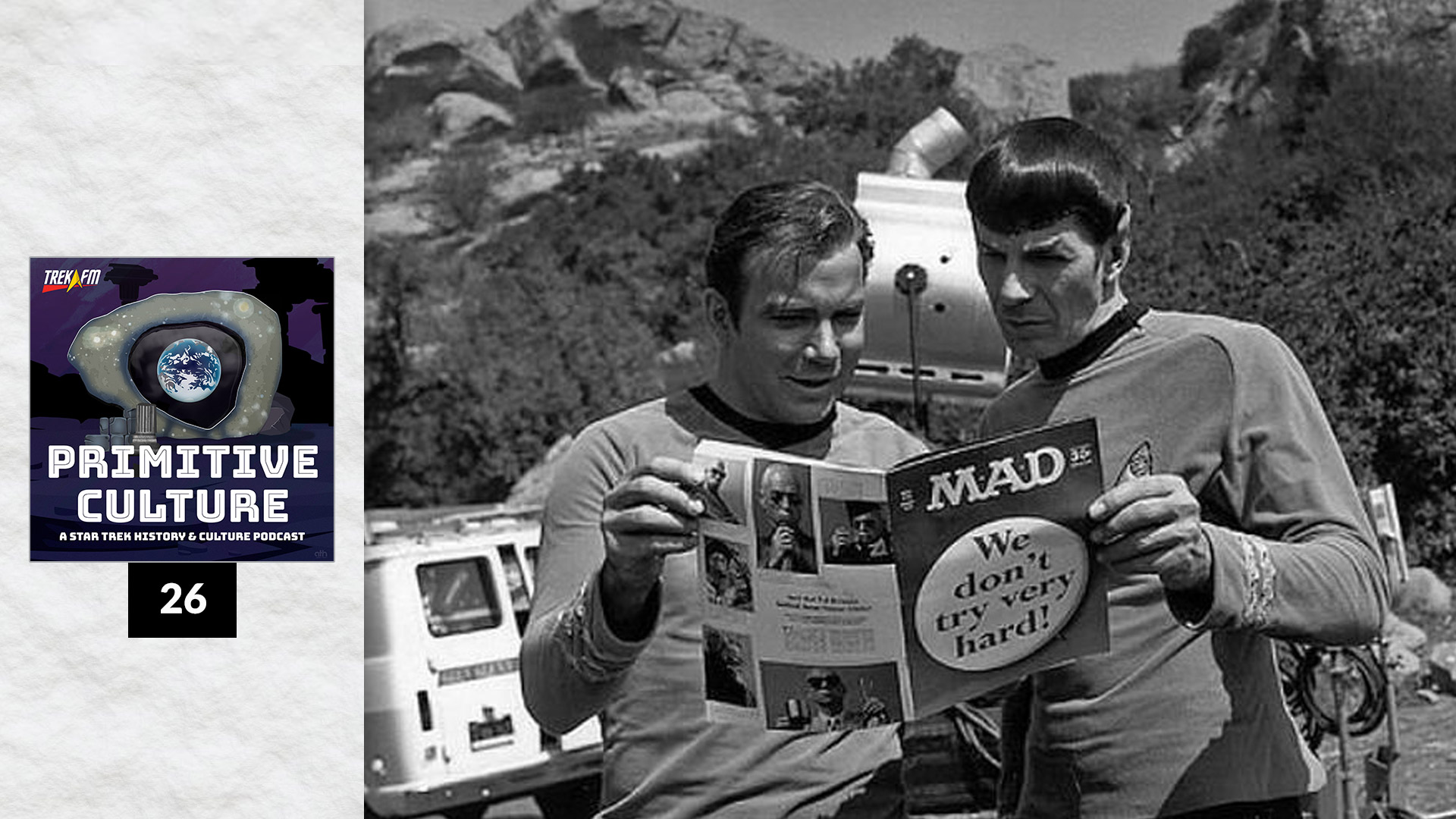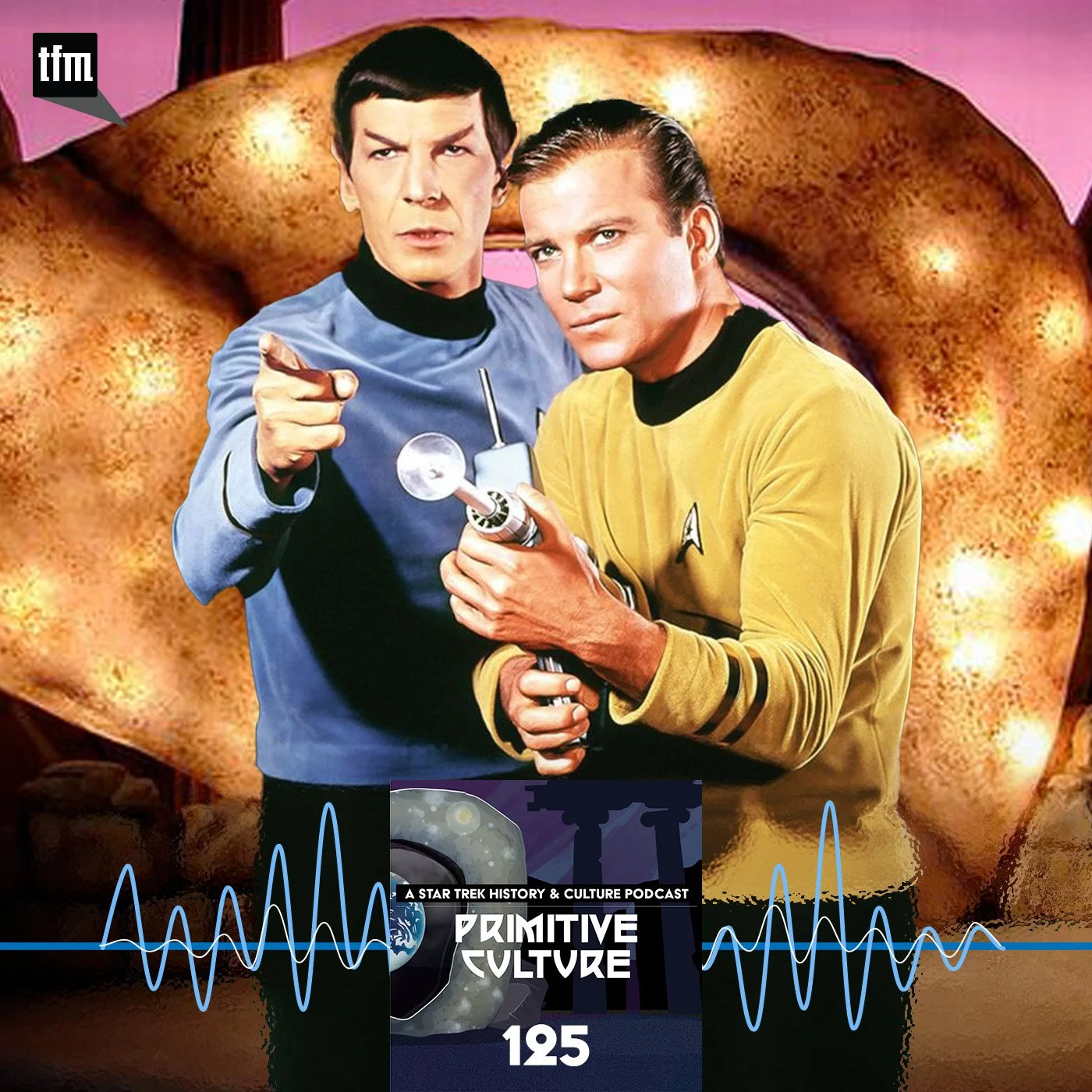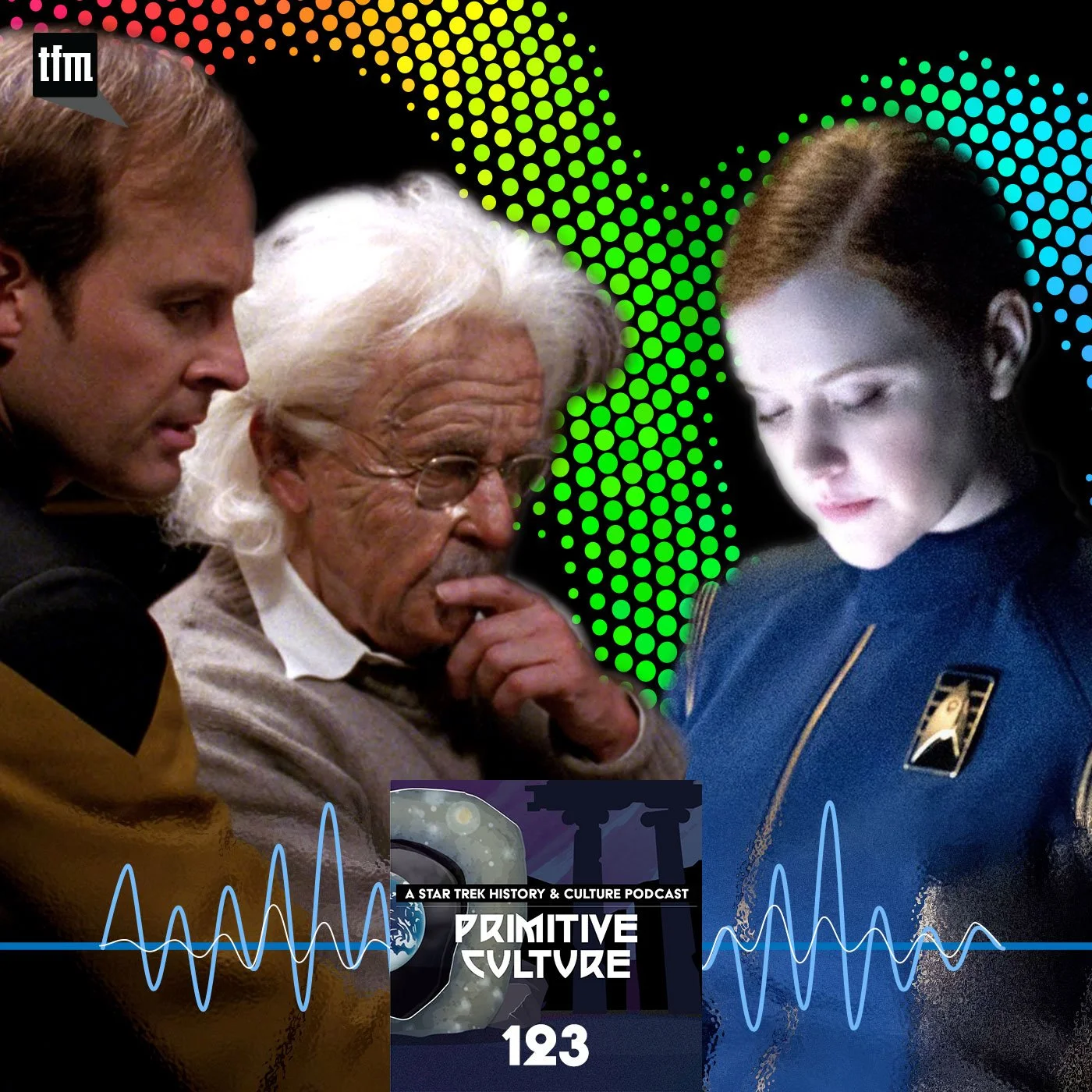Star Trek and Fan Fiction.

Running Time: 1 hour 29 minutes 52 seconds
Download / RSS / Send us a message / Discuss the show / Support Trek.fm
Star Trek fans have always been more dedicated than most, organizing large-scale letter-writing campaigns to save their favorite show, perfecting elaborate costumes so they can impersonate individual characters, and even mastering entirely fictional languages. But for some fans, simply enjoying Star Trek as audience members is not enough—they want to be co-creators of the stories that keep their beloved franchise alive.
In this episode of Primitive Culture, hosts Clara Cook and Tony Black consider the phenomenon of fan fiction, from its origins with the 'Slash' movement of the 1970s through to the present day, when the internet has made thousands of fan-written works, some of them novel-length or more, available to fellow enthusiasts around the world. Along the way, they consider the thorny question of what counts as canon, tropes such as the much-derided 'Mary Sue', and talk in depth about Tony's own fan fiction script series, Star Trek: Premonition.
Chapters
Intro (00:00:00)
A history of Star Trek fanfic (00:07:00)
Slash (00:14:20)
Fanfic websites (00:18:15)
Star Trek: Premonition (00:28:40)
Licensed works (00:45:00)
Mary Sues (01:00:05)
Final thoughts (01:10:00)
Hosts
Clara Cook and Tony Black
Production
Tony Black (Editor) C Bryan Jones (Executive Producer) Matthew Rushing (Executive Producer) Ken Tripp (Executive Producer) Norman C. Lao (Associate Producer) Amy Nelson (Associate Producer) Richard Marquez (Production Manager) Brandon-Shea Mutala (Patreon Manager)
Music in Star Trek. We take a look at how Trek’s underscore has developed over more than half a century with musicologists Jessica Getman and Evan Ware.
Half a Decade of Primitive Culture. In this special episode, recorded earlier this year, we look back on the podcast and how Star Trek has changed in the time we’ve been podcasting.
Cardassian war crimes and The Man in the Glass Booth. We look at the DS9 episode “Duet” alongside The Man in the Glass Booth, as well as the presentation of war crimes in Star Trek more generally.
Autistic representation in Star Trek. We look at Trek’s history of (accidental) representation of neurodiversity, considering characters such as Data, Seven of Nine, Reginald Barclay, and Sylvia Tilly.
Star Trek’s Double Troubles. We look doppelgängers and duplicates from The Original Series through Lower Decks.
Trans Representation in Star Trek. We look at how Star Trek accidentally addressed the topic in TNG and DS9.
The Alien franchise and Star Trek: Strange New Worlds. We take a look at “All Those Who Wander” alongside the Alien franchise.
How Star Trek’s leaders reflect our own. We talk about the parallels between Star Trek’s leaders and our own, and ask whether Star Trek has finally managed to marry the military ethos of Starfleet with the business of intergalactic politics.
Star Trek’s backdoor pilots. We take a look at the original attempt to establish a spinoff series, “Assignment: Earth,” as well as more recent examples including Strange New Worlds and more potential offspring of Discovery.
What if it wasn’t the Vulcans who made first contact? In honor of First Contact Day, we imagine how things might have played out for humanity had it been the Klingons, Romulans, or others passing by on April 5, 2063.










